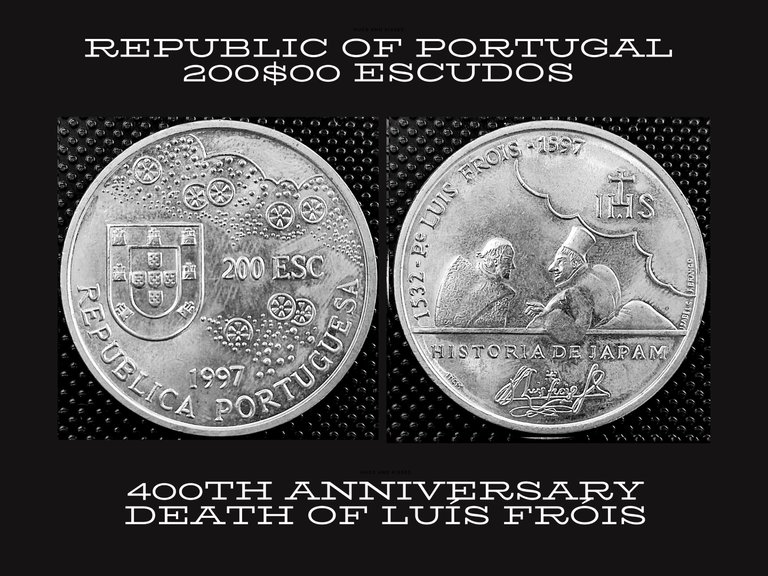
The 200 Escudos coin minted in 1997 commemorates the 400th Anniversary of the Death of Luís Fróis, a prominent figure in Portuguese history renowned for his contributions to literature, missionary work, and cultural exchange between Europe and Asia.
Crafted from copper-nickel and with a diameter of 36 millimeters. The weighing approximately 21.1 grams, the 200 Escudos coin strikes a balance between heft and practicality, offering a tangible representation of Portugal's historical and cultural significance.
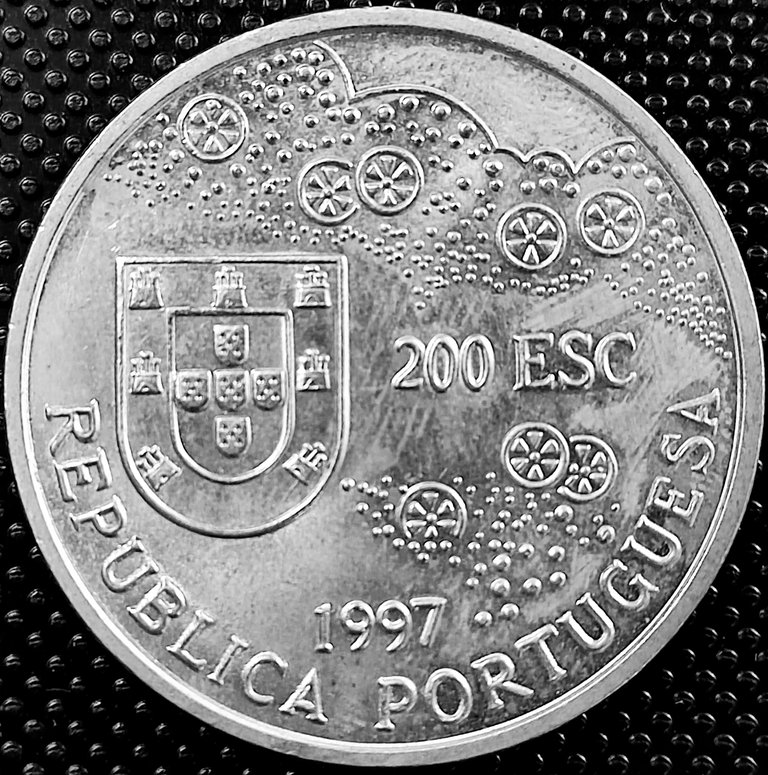
An allegory composed by to the left the national coat of arms, in the upper and lower part motifs that appear in some screens of japanese "Nambam" art representing the golden clouds, in the lower rim the legend "República Portuguesa", above it the date 1997, to the right beside the coat of arms the face value 200 escudos, on the edge smooth circle.
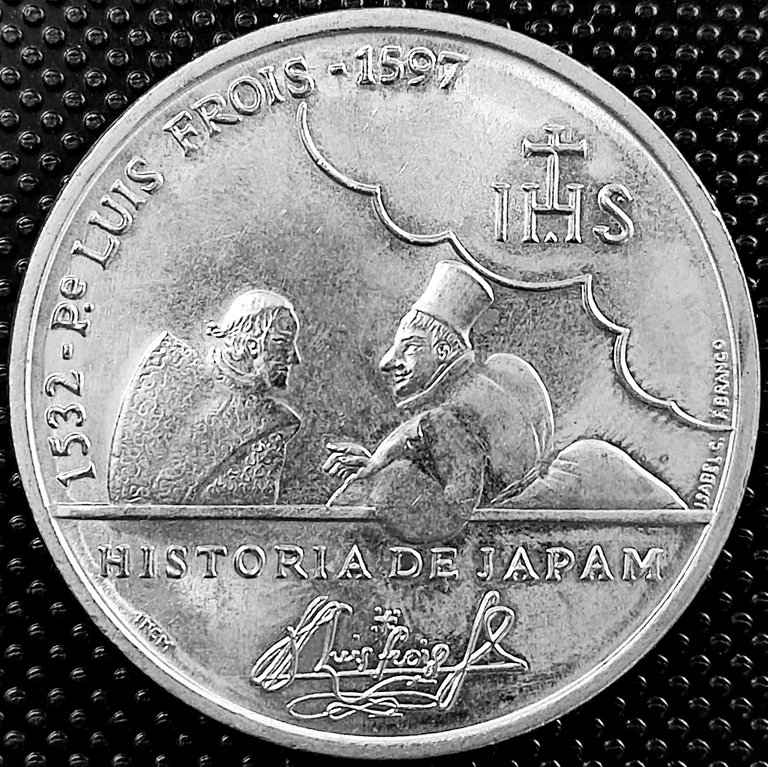
An allegory composed by to the right, inside a cloud, its monogram, which is also the emblem of the society of jesus. In the center, the representation of a jesuit conversing with a Japanese nobleman, in the upper left rim the legend and the dates of birth and death: 1532 - pe. Luís Fróis, 1597. In the exergue, below the representation the legend "História de Japam", and below near the facsimile of his signature, to his left also near the rim the initials of the imprensa nacional casa da moeda "incm".
| SPECIFICATIONS | |
|---|---|
| PERIOD | Portuguese Republic (1986 - 2001) |
| YEAR | 1997 |
| COMPOSITION | Copper-Nickel |
| EDGE | Reeded |
| WEIGHT(g) | 21.1 |
| DIAMETER | 36mm |
| THICKNESS(mm) | 2.8 |
The 200 Escudos coin commemorating the 400th Anniversary of the Death of Luís Fróis serves as a poignant tribute to his enduring legacy and contributions to Portuguese history and cultural exchange. It's exquisite craftsmanship, symbolic design, and limited mintage make it a prized addition to any numismatic collection, honor the life and achievements of this remarkable individual.
History
The year 1597 marked the passing of Luís Fróis, a significant figure in the history of Portuguese exploration, missionary endeavors, and cross-cultural exchange during the Age of Discovery. Fróis was a Jesuit priest, historian, and missionary who played a pivotal role in the early interactions between Portugal and Japan, leaving a lasting legacy that transcended geographical and cultural boundaries.
Luís Fróis joined the Society of Jesus, a religious order known for its missionary zeal and intellectual rigor. He embarked on a journey to Asia, inspired by the fervent missionary spirit of the time and the desire to spread Christianity to distant lands.
Fróis arrived in Japan in 1563, at a time when the country was undergoing profound political and social transformations. Japan, ruled by powerful feudal lords known as daimyōs, was experiencing internal strife and external threats, including the incursion of European traders and missionaries.
As a Jesuit missionary, Fróis dedicated himself to evangelizing the Japanese people, adapting to their customs and learning their language. He immersed himself in Japanese society, engaging in dialogue with scholars, officials, and commoners alike, seeking to understand their beliefs and traditions while sharing the message of Christianity.
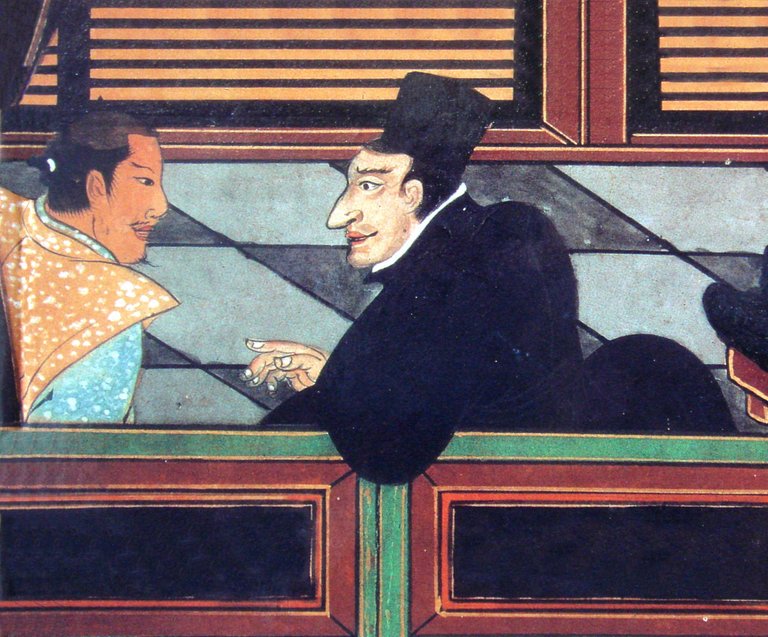
SOURCE
Fróis most enduring contribution to Japanese history lies in his writings. His monumental work, "Historia de Japam", provides a detailed account of Japanese culture, society, and politics. Through meticulous observation and analysis, Fróis offered valuable insights into the customs, rituals, and worldview of the Japanese people, shedding light on their rich and complex civilization.
Beyond his scholarly pursuits, Fróis also played a diplomatic role, serving as an intermediary between the Portuguese authorities and the Japanese rulers. He sought to navigate the delicate balance of power and interests, advocating for peaceful coexistence and mutual understanding between East and West.
However, Fróis' missionary activities and the growing influence of Christianity in Japan eventually sparked tensions and opposition from traditionalist forces. The Japanese government issued the expulsion edict, which banned the practice of Christianity and expelled foreign missionaries from the country.
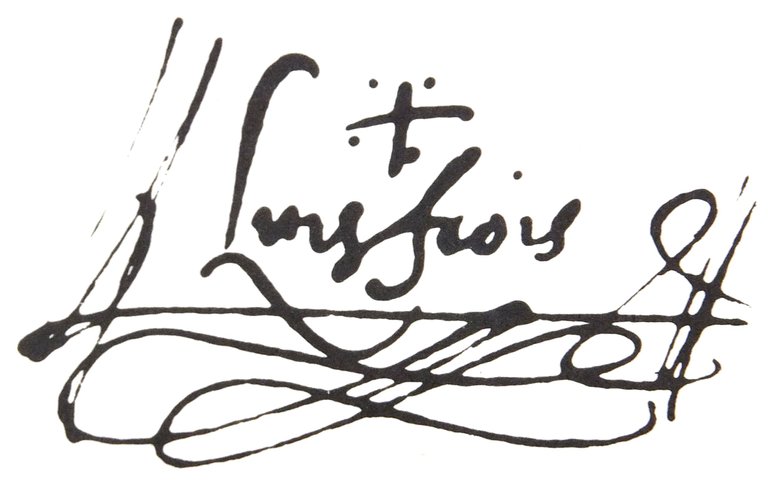
SOURCE
Despite the risks and challenges, Fróis remained steadfast in his commitment to the Christian faith and the welfare of the Japanese people. He continued to support the underground Christian community, providing spiritual guidance and pastoral care to those facing persecution and hardship.
Luís Fróis passed away in 1597, at a time when the future of Christianity in Japan seemed uncertain. His death marked the end of an era of pioneering missionary efforts and cultural exchange between Portugal and Japan. Yet, his legacy endured, inspiring future generations of missionaries, scholars, and diplomats to bridge the divides between nations and foster dialogue and understanding across cultures.
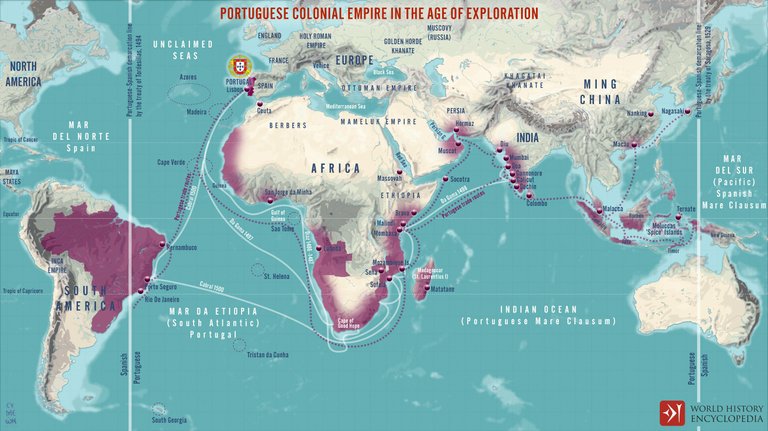
SOURCE
In this post all photos and text are authored by @portugalcoin!
➡️ Twitter
➡️ Brave Internet Browser
Images © 2024 @portugalcoin | All Rights Reserved

Welcome to my blog on Hive! Here, you'll discover various trips I've taken in Portugal, along with information about the main monuments, squares, streets, palaces, and more.
I'm also an avid collector of Portuguese coins, so feel free to exchange thoughts or information about numismatics with me. 🇵🇹🙏!
[Hive original]